Past Patient Centered Care Webinars
December 8, 2021
Testicular Cancer
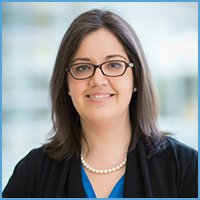
Mary W. Dunn, MSN, RN, OCN, NP-C
Adult Nurse Practitioner
Urology & Medical Oncology
Division of Oncology
UNC Lineberger Comprehensive Cancer Center
UNC School of Medicine
University of North Carolina at Chapel Hill
Lecture Handouts
to View Our Courses for Free CE Credit
October 13, 2021
Title TBD
Speaker TBD,
UNC Lineberger Comprehensive Cancer Center
UNC School of Medicine
University of North Carolina at Chapel Hill
[/column]
[/row]
Lecture Handouts
- 2-Up Version
- 3-Up Version
to View Our Courses for Free CE Credit
September 8, 2021
Meeting the Cancer Prevention and Care Needs
of North Carolina’s Indigenous Communities
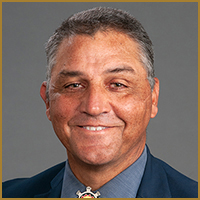
Ronny Bell, PhD, MS
Director, Office of Cancer Health Equity
Associate Director, Community Outreach and Engagement
Professor, Social Sciences and Health Policy
Wake Forest School of Medicine
Wake Forest Baptist Health
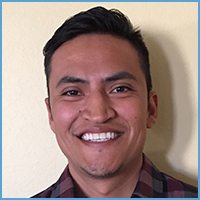
Marc Emerson, PhD, MPH
Assistant Professor
Epidemiology
UNC Lineberger Comprehensive Cancer Center
UNC School of Medicine
University of North Carolina at Chapel Hill
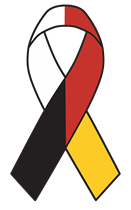 |
This lecture co-sponsored by |
Lecture Handouts
to View Our Courses for Free CE Credit
July 14, 2021
Addressing Cognitive Dysfunction
in Patients with Cancer

Zev Nakamura, MD
Clinical Assistant Professor
Department of Psychiatry
UNC Lineberger Comprehensive Cancer Center
UNC School of Medicine
University of North Carolina at Chapel Hill
Lecture Description
Cancer and cancer treatments can affect patient’s memory, concentration, and other aspects of cognition. While this condition is often called ‘chemo-brain,’ cognitive dysfunction can be due to many factors in patients with cancer. Dr. Nakamura will review our latest understandings of this condition.
Learning Objectives:
- Identify causes of cancer-related cognitive dysfunction
- Describe the impact of cognitive problems in cancer patients on quality of life and medical outcomes
- Recognize available treatments for patients with cancer experiencing cognitive dysfunction
- Presentation Handout
to View Our Courses for Free CE Credit
June 9, 2021
Oncologic Emergencies
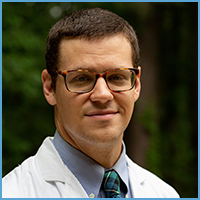
Jacob Stein, MD
Fellow
Division of Hematology & Oncology
UNC Lineberger Comprehensive Cancer Center
UNC School of Medicine
University of North Carolina at Chapel Hill
Lecture Description
A review of several of the most common clinical emergencies that occur with malignancy and how to manage them, with tips on management and discussion of common misconceptions.
Learning Objectives
-
-
- Recognize several of the most common oncologic emergencies, including spinal cord compression, SVC syndrome and hypercalcemia.
- Recall key diagnostic steps in identifying these oncologic emergencies as well as pathophysiologic mechanisms.
- Describe the approach to management of acute malignant spinal cord compression, SVC syndrome, and hypercalcemia.
-
Handouts
May 12, 2021
Integrative Medicine
and Cancer Care

Denise Spector, PhD, MPH, ANP, RYT
Oncology Nurse Practitioner
UNC Lineberger Comprehensive Cancer Center
UNC School of Medicine
University of North Carolina at Chapel Hill
Lecture Description
The presentation will provide an overview of Integrative Medicine (IM) and Lifestyle Medicine for oncology patients, including definitions of IM, integrative oncology, and lifestyle medicine as they relate to the care of oncology patients. Specific strategies that may be incorporated to enhance the care of those affected by cancer will be highlighted, along with a description of the Integrative Medicine Consultative Service through the Comprehensive Cancer Support Program (CCSP). Additional resources/websites will be provided.
Learning Objectives
-
-
- Differentiate between integrative medicine and alternative medicine for cancer patients.
- Describe three evidence-based strategies that may help improve the quality of life for individuals affected by cancer.
- Identify appropriate cancer patients/survivors who may benefit from an integrative medicine consultation.
-
Handouts
April 14, 2021
Making Exercise and Wellness
Part of the Cancer Experience
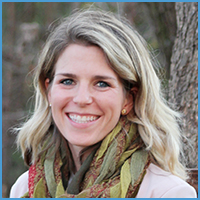
Carly Bailey, MA
Program Director
Physical Activity and Integrative Oncology
UNC Lineberger Comprehensive Cancer Center
UNC School of Medicine
University of North Carolina at Chapel Hill
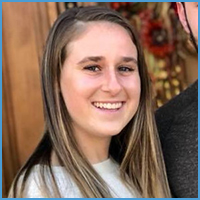
Brianna Castrogivanni, MS, RCEP
Clinical Research Coordinator
UNC Lineberger Comprehensive Cancer Center
UNC School of Medicine
University of North Carolina at Chapel Hill
Lecture Description
This lecture will provide education on the safety and benefit of exercise during and after cancer treatment, resources that we have available at UNC and how you can help your patients implement exercise and wellness behaviors during and after their treatment.
Learning Objectives
-
-
- Describe the ACSM exercise recommendations for cancer patients and survivors.
- Recognize the role of exercise and wellness during and after cancer treatment to improve patient outcomes.
- Explain how to help patients set exercise and wellness goals based on available resources.
-
Handouts
March 10, 2021
Immune (check point) Related
Adverse Events 2021
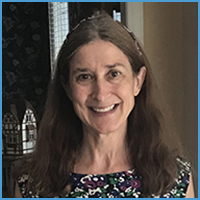
Frances A. Collichio, MD
Professor
UNC Lineberger Comprehensive Cancer Center
UNC School of Medicine
University of North Carolina at Chapel Hill
Lecture Description
This is a case-based lecture to cover the common side effects and rare but important side effects of check point inhibitors and other immunotherapy agents.
Learning Objectives
-
-
- Recognize and grade common and rare immune related side effects.
- Understand the common algorithms for treatment of immune related side effects.
- Describe situations where the risk of side effects from immune therapy is greater than usual.
-
Handouts
February 10, 2021
Interprofessional Collaboration
in Caring for Adults with Cancer
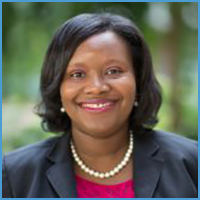
Ashley Leak Bryant, PhD, RN-BC, OCN, FAAN
Associate Professor
Anne Belcher Interprofessional Faculty Scholar in Nursing
UNC Lineberger Comprehensive Cancer Center
UNC School of Medicine
University of North Carolina at Chapel Hill
Lecture Description
In this presentation, Dr. Bryant will share strategies in collaborating with team members in both the inpatient and outpatient settings to optimize cancer care.
Learning Objectives
-
-
- Identify benefits of interprofessional collaboration when caring for adults with cancer.
- Describe challenges of interprofessional collaboration when caring for adults with cancer.
- Discuss successful interprofessional collaborations in caring for adults with cancer.
-
Handouts
January 13, 2021
Genetic Testing in Cancer Patients:
A Case Illustration
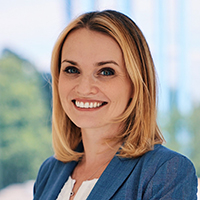
Amber Cipriani, PharmD, BCOP, CPP
Clinical Assistant Professor
UNC Lineberger Comprehensive Cancer Center
UNC School of Medicine
University of North Carolina at Chapel Hill
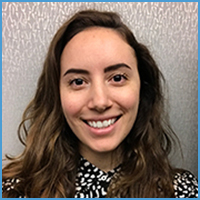
Ashlynn Messmore, CGC, MS
Clinical Assistant Professor, Genetics
UNC Lineberger Comprehensive Cancer Center
UNC School of Medicine
University of North Carolina at Chapel Hill
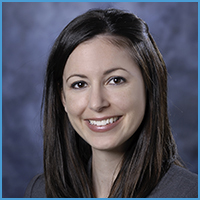
Jaime Richardson, BA, RN, BSN, OCN, CCRP
Nurse Coordinator
UNC Lineberger Comprehensive Cancer Center
UNC School of Medicine
University of North Carolina at Chapel Hill
Lecture Description
This talk aims to provide a general background on the breadth and application of genetic testing in cancer patients. We will also provide strategies for communicating with patients about the necessity and utilization of testing, by presenting sample patient cases to demonstrate these approaches.
Learning Objectives
-
-
- Define somatic and germline genetic testing
- Describe the roles of somatic and germline genetic testing in cancer care
- Discuss best ways to communicate genetic information to help bridge the language gap between providers and patients
- Explain the process of utilizing genetic testing to select optimal cancer treatment
-
Handouts
December 9, 2020
If You Have to Ask, You Can’t Afford It:
Addressing Financial Toxicity Among NC Cancer Patients

Stephanie B. Wheeler, PhD, MPH
Professor, Health Policy and Management
UNC Gillings School of Global Public Health
Associate Director, Community Outreach and Engagement
UNC Lineberger Comprehensive Cancer Center
UNC School of Medicine
University of North Carolina at Chapel Hill
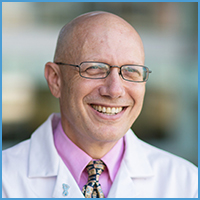
Donald Rosenstein, MD
Professor
Division Head, General Adult Psychiatry
Director, Comprehensive Cancer Support Program
UNC Lineberger Comprehensive Cancer Center
UNC School of Medicine
University of North Carolina at Chapel Hill
Lecture Description
Drs. Stephanie Wheeler and Don Rosenstein will discuss current concepts related to “financial toxicity” and how this applies to cancer care delivery in North Carolina. Current research including interventions in development to mitigate financial toxicity will also be reviewed.
Learning Objectives
-
-
- Identify several examples of escalating costs of cancer care in the United States
- Differentiate three main components of financial toxicity
- Describe three consequences of financial toxicity
- Explain process mapping and its value in a financial navigation intervention
-
Handouts
November 11, 2020
The Aging Cancer Patient Population
in North Carolina

Hyman B. Muss, MD
Mary Jones Hudson Distinguished Professor of Geriatric Oncology
Director, Geriatric Oncology Program
UNC Lineberger Comprehensive Cancer Center
UNC School of Medicine
University of North Carolina at Chapel Hill
Lecture Description
Dr. Hyman Muss will discuss recommendations related to specific needs of older patients with cancer. Updates will be presented regarding the implementation of the geriatric assessment into routine cancer care, as well as management strategies that are identified based on the results of the geriatric assessment.
Learning Objectives
-
-
- Describe the demographics of aging and cancer.
- Describe critical elements of performing a geriatric assessment.
- Formulate a specific treatment plan for older oncology patients.
-
Handouts
October 14, 2020
Recognizing and Managing Side Effects
of Cancer Treatment
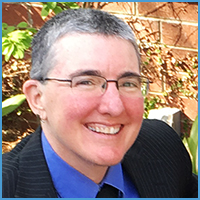
Terri Phoenix, PhD
Director
LGBTQ Center
UNC Student Affairs
University of North Carolina at Chapel Hill
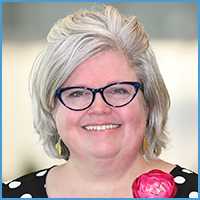
Patricia Morfeld, RN, BSN, OCN
Registered Nurse
Chemotherapy
UNC Lineberger Comprehensive Cancer Center
UNC School of Medicine
University of North Carolina at Chapel Hill
Lecture Description
Terri Phoenix, PhD, and Patricia Morfeld, RN, BSN, OCN, will discuss physical and psychological concerns of transgender patients who have active cancer or who are survivors. Session will address relevant terminology, recommended practices, and resources for continuing education.
Learning Objectives
-
-
- Define terms related to transgender and nonbinary identities.
- Discuss the position statements from professional organizations (ANA, ASCO, Joint Commission) regarding treatment of transgender patients.
- Discuss research regarding cancer prevalence and survivorship in transgender communities.
- Explain culturally affirming practices when working with transgender patients.
- Identify resources for continuing education regarding trans patients.
-
Handouts
September 9, 2020
Recognizing and Managing Side Effects
of Cancer Treatment
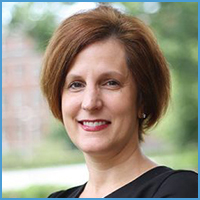
Amanda H. Corbett, PharmD, BCPS, FCCP
Assistant Dean, Professional Curriculum
Clinical Associate Professor
Associate Director, Global Engagement
UNC Eshelman School of Pharmacy
UNC Lineberger Comprehensive Cancer Center
University of North Carolina at Chapel Hill
Lecture Description
Amanda Corbett, PharmD, BCPS, FCCP, will discuss recommendations regarding the use of supplements in patients with cancer. Safe use of THC and CBD will also be presented.
Learning Objectives
-
-
- Identify key components and resources on assessing safe use of dietary supplements in patients.
- Describe some common uses of dietary supplements used by patients.
- Identify legal and product regulations around CBD and THC and how to safely use them.
-
Handouts
August 12, 2020
Recognizing and Managing Side Effects
of Cancer Treatment
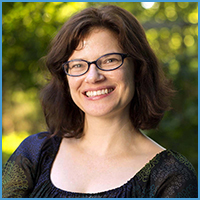
Michelle Gardiner, PharmD, BCOP, CPP
Clinical Pharmacist
UNC Lineberger Comprehensive Cancer Center
UNC School of Medicine
University of North Carolina at Chapel Hill
Lecture Description
Dr. Michelle Gardiner will discuss topics relevant to common and problematic side effects of anti-cancer treatments. Issues to be covered include; handling of acute infusion reactions, prevention and treatment of peripheral neuropathy, and the importance of recognizing and evaluating cancer-related fatigue in patients.
Learning Objectives
-
-
- Identify strategies for preventing and treating acute infusion reactions
- Describe non-pharmacological and pharmacological ways to prevent or manage chemotherapy induced peripheral neuropathy
- Demonstrate an understanding of cancer-related fatigue and list treatable contributing factors
-
Handouts
July 8, 2020
Patient-Reported Outcomes (PROs) in Cancer Care
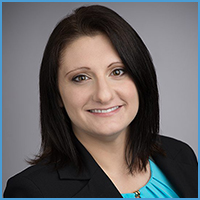
Angela M. Stover, PhD
Assistant Professor
Health Policy and Management
UNC Gillings School of Global Public Health
University of North Carolina at Chapel Hill
Lecture Description
Dr. Angela Stover will discuss Patient Reported Outcomes (PRO) reporting within the oncology setting. PRO reporting involves receiving information directly from patients and permitting healthcare professionals to treat the whole patient through personal assessments of symptoms and of daily health status. She will emphasize PROs outside the clinic and will then report on the pilot ePRO rollout at UNC Health Care (where PROs are collected in the clinic).
Lecture Objectives
-
-
- Describe what patient reported outcomes (PROs) are and how are they used in cancer care.
- Describe the clinical outcomes PROs can improve when completed remotely outside the clinic (at home) and in clinic.
- Discuss the application of PROS via an implementation case study at NC Cancer Hospital.
-
Handouts
June 10, 2020
The Role of Race in Cancer Diagnosis,
Treatment, and Survivorship
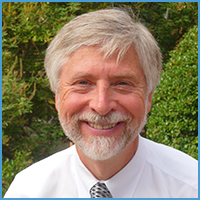
Samuel Cykert, MD
Professor, Division of General Medicine and Clinical Epidemiology
Director, UNC School of Medicine Program on Health and Clinical Informatics
Associate Director for Medical Education, NC AHEC Program
Clinician and Researcher
UNC Lineberger Comprehensive Cancer Center
UNC School of Medicine
University of North Carolina at Chapel Hill
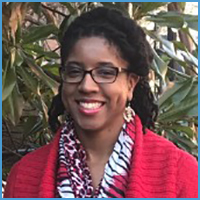
Christina Yongue, MPH, MCHES
Assistant Professor
Director, Undergraduate Studies
Department of Public Health Education
School of Health and Human Sciences
University of North Carolina at Greensboro
Lecture Description
Samuel Cykert, MD, and Christina Yongue, MPH, MCHES, will discuss the role of race in cancer treatment and survivorship. Topics may include issues around bias, access to care, and addressing disparities with systematic interventions.
Lecture Objectives:
-
-
- Describe Black-White Disparities in completion of treatment for stages 1 and 2 breast and lung cancer.
- Describe how community should be involved in the prevention of disparities in cancer care.
- Describe the difference between system-based and individual based interventions and how systematic intervention is most likely to attenuate structural racism.
- Recognize how clinical informatics combined with human responsibility can provide the transparency and accountability to overcome systematic bias.
-
May 13, 2020
Delivering Survivorship Care in North Carolina
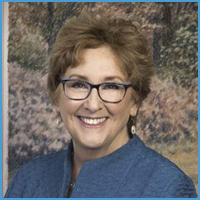
Deborah Mayer, PhD, RN, AOCN, FAAN
Frances Hill Fox Distinguished Professor
UNC School of Nursing
Director
Cancer Survivorship
UNC Lineberger Comprehensive Cancer Center
UNC School of Medicine
University of North Carolina at Chapel Hill
Lecture Description
An aging population, a growing number of cancer survivors, and a projected shortage of cancer care providers will result in a challenge in delivering the care for cancer survivors in the United States if systemic changes are not made, according to a commentary in the Journal of the National Cancer Institute. Dr. Mayer will discuss these issues with particular consideration to providing cancer survivorship care in North Carolina.
Lecture Objectives:
-
-
- Analyze cancer survivorship trends and define cancer survivorship
- Describe unmet needs of cancer survivors and identify the components of survivorship
- Discuss current and evolving models of survivorship care
-
April 8, 2020
Use of Opioids in Patients with Cancer
in North Carolina
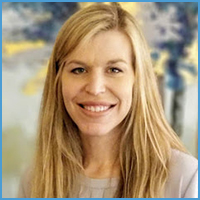
Amy M. Goetzinger, PhD
Associate Professor
Department of Anesthesiology, Division of Pain Medicine
UNC Lineberger Comprehensive Cancer Center
UNC School of Medicine
University of North Carolina at Chapel Hill
Lecture Description
Amy M. Goetzinger, PhD, will discuss concerns and strategies related to the use of opioids in patients with cancer in North Carolina. Dr. Goetzinger will share best recommended strategies for the identification and management of cancer-related pain.
Lecture Objectives:
-
-
- Explain factors and the current response of the opioid crisis over time.
- Identify best practices of opioid use for cancer-related pain.
- Describe alternative strategies and therapies for cancer-related pain.
-
March 11, 2020
Meeting the Needs of Undocumented Patients with Cancer
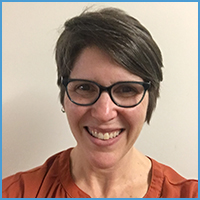
Julia Rodriguez-O’Donnell, LCSW, OSW-C
Licensed Clinical Social Worker
Oncology Outpatient Clinics
UNC Lineberger Comprehensive Cancer Center
UNC School of Medicine
University of North Carolina at Chapel Hill
Lecture Description
Julia Rodriguez-O’Donnell, LCSW, OSW-C, will discuss ethical and practical considerations related to providing care for undocumented patients with cancer, with particular attention to considerations relevant to cancer care in North Carolina.
Lecture Objectives:
-
-
- Explain barriers experienced by undocumented and non-English speaking patients seeking cancer care
- Describe ethical and practical concerns for delivering comprehensive cancer care to undocumented patients with cancer and their families
- Discuss UNC medical center and North Carolina community resources to assist undocumented patients and their families to receive best practice cancer care
-
February 12, 2020
The Role of Patient Support Networks
in Cancer Outcomes
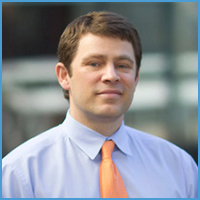
Justin Yopp, PhD
Assistant Professor
Department of Psychiatry
UNC Lineberger Comprehensive Cancer Center
UNC School of Medicine
University of North Carolina at Chapel Hill
Lecture Description
Dr. Justin Yopp will discuss the role of social support in cancer care delivery and cancer outcomes. As part of this presentation, Dr. Yopp will also discuss considerations related to caregivers and to patients who do not have immediate caregiver support.
Lecture Objectives:
-
-
- Describe the importance of social support for patients being treated for cancer
- List the challenges facing patients who lack caregiver or social support
- Discuss ways to assist patients in building a social support network
-
January 8, 2020
The Benefits of Exercise for Cancer Patients
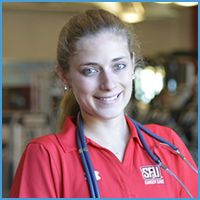
Gabrielle Brennan, MS, ACSM EP-C, CET
Clinical Exercise Physiologist
Cardiac Rehabilitation
UNC Medical Center
University of North Carolina at Chapel Hill
Lecture Description
Cardio-oncology is a newly expanding area of cancer rehabilitation in the exercise world. As a Clinical Exercise Physiologist part of the Cardiac Rehabilitation team, Gabrielle Brennan, MS, ACSM EP-C, CET, has a Master of Science in Exercise Physiology with a specialization in Cancer Care. Previously, she worked as an Exercise Specialist as the program director for the LiveFit Cancer Exercise Program. She will explore the program and numerous benefits patients gained from this program. The American College of Sports Medicine guidelines for cancer patients will also be discussed.
Lecture Objectives:
-
-
- Explain the components of a cancer exercise program
- Describe the American College of Sports Medicine Guidelines for exercise in cancer patients
- Discuss the effect of exercise on cancer patients
-
November 13, 2019
Nutrition and the Aging Brain in Cancer Care
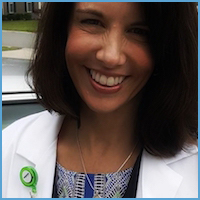
Melissa Walter, MPH, RDN, LDN
Dietitian/Nutritionist
Program Specialist, PRISM Technical Director, Department of Nutrition
UNC Gillings School of Global Public Health
University of North Carolina at Chapel Hill
Lecture Description
Our brains change as we age. These alterations become more complicated when a patient undergoes radiation therapy and/or chemotherapy for cancer. Melissa Walter will guide us in how we can support brain health while managing nutrition-related complications of treatment.
Lecture Objectives:
-
-
- Describe brain and neurological changes that occur as a result of chemotherapy and radiation treatments in cancer care.
- Identify critical elements of a diet that provides support for age-related changes in brain function and cognition.
- Discuss ways to provide basic nutrition support and to make dietitian referrals to lessen cognitive and neurological impacts of chemotherapy and radiation.
-
November 13, 2019
Tobacco Use Treatment
in Cancer Care
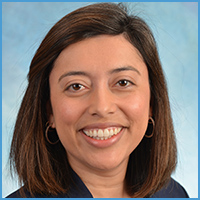
Ellen Ruebush, LCSW, LCAS, NCTTP
Tobacco Treatment Specialist
Tobacco Treatment Program
UNC Lineberger Comprehensive Cancer Center
UNC School of Medicine
University of North Carolina at Chapel Hill
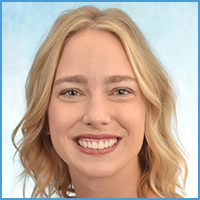
Colleen Meyer, MSW, LCSW
Tobacco Treatment Specialist
Tobacco Treatment Program
UNC Lineberger Comprehensive Cancer Center
UNC School of Medicine
University of North Carolina at Chapel Hill
Lecture Description
Patients who stop using tobacco have improved cancer treatment outcomes and decreased treatment-related side effects, making tobacco use treatment an essential component of cancer care. This lecture will present evidence-based treatment for tobacco use, including guidelines for brief intervention and for prescribing tobacco cessation medications.
Lecture Objectives:
-
-
- Describe evidence based brief behavioral interventions for tobacco use treatment.
- Identify standard of care cessation medications and make appropriate recommendations.
- Recognize special considerations for providing tobacco use treatment to oncology patients.
-
October 9, 2019
Working with LEP Patients
& Medical Interpreters
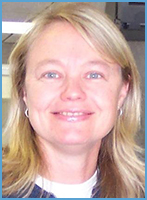
Myriam Peereboom, MBA/MHA, CMI, CHITM
Education Specialist
Interpreter Services
UNC Lineberger Comprehensive Cancer Center
UNC School of Medicine
University of North Carolina at Chapel Hill
Lecture Description
Sometimes patients and their families have problems working with physicians and nurses because of language barriers. Myriam Peereboom, MBA/MHA, CMI, CHITM, will discuss the role(s) that an interpreter plays within the treatment plan as well as their modes and methods of conveying information back and forth. She will also share the importance in utilizing a qualified interpreter and the legal implications from using an unqualified interpreter.
Lecture Objectives:
-
-
- Differentiate an Interpreter from a Translator.
- Describe legal or negative consequences of not using a qualified Interpreter or Translator.
- Identify different interpreting roles, modes and methods.
-
September 11, 2019
Professional Development
and Continuing Education for Oncology Nurses
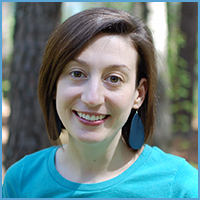
Claire Gillett, RN, MSN, OCN
Clinical Nurse Education
UNC Lineberger Comprehensive Cancer Center
UNC School of Medicine
University of North Carolina at Chapel Hill
Lecture Description
This lecture includes a review of professional development guidelines for Oncology Nurses, including education requirements for the State of North Carolina Board of Nursing. Claire Gillett will review favorite places to receive continuing education credits, as well as the UNC Lineberger Comprehensive Cancer Center’s/UNC Cancer Network’s RN education program and our 2019 schedule and list of topics.
Lecture Objectives:
-
-
- Identify key electronic and written resources for reputable and meaningful oncology education, including resources on current and emerging oncology therapies.
- List continuing education requirements at the organizational and State level as determined by the NC Board of Nursing.
- Identify the significance and importance of nursing professional development
-
August 14, 2019
The Many Roads of Esophageal Cancer: Treatments, Side Effects and Common Complications
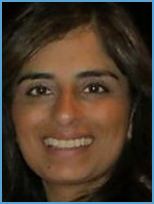
Shifali Arora, MD
Assistant Professor of Medicine
Division of Gastroenterology and Hepatology
UNC Lineberger Comprehensive Cancer Center
UNC School of Medicine
University of North Carolina at Chapel Hill
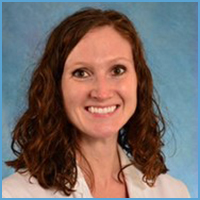
Kathleen Ferrell, PA-C
Physician Assistant
Division of Gastroenterology and Hepatology
UNC Lineberger Comprehensive Cancer Center
UNC School of Medicine
University of North Carolina at Chapel Hill
Lecture Description
Esophageal cancer treatments have evolved greatly over the last few decades. Depending on depth of invasion, endoscopic therapies are now part of the treatment algorithm. We will follow two cases from diagnosis to treatment to highlight therapeutic options and common side effects and complications.
Lecture Objectives:
-
-
- Recognize the common complications and side effects associated with esophagectomy.
- Recognize the common complications and side effects associated with cryotherapy and RFA.
- Describe how to treat the most common post treatment symptoms.
-
July 10, 2019
Radiation Oncology 101
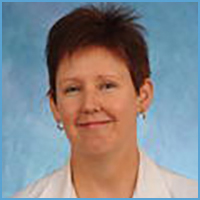
Jayne Camporeale, MS, RN, OCN, APRN
Assistant Professor
Adult Care Nurse Practitioner
Department of Radiation Oncology
UNC Lineberger Comprehensive Cancer Center
UNC School of Medicine
University of North Carolina at Chapel Hill
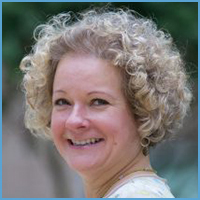
Mary Fleming Knowles, MSN, ANP-C
Adult Care Nurse Practitioner
Department of Radiation Oncology
UNC Lineberger Comprehensive Cancer Center
UNC School of Medicine
University of North Carolina at Chapel Hill
Lecture Description
Radiation therapy can be used alone or in combination with chemotherapy in cancer treatment plans. This discussion will review the different forms of radiation therapy (including Proton Therapy, etc.), how it works, and how it can be used in combination with chemotherapy. Since radiation therapy has its own set of side effects, the speaker will address the most common symptoms (such issues as appetite loss and radiation mucositis) and how to help patients deal with them.
Lecture Objectives:
-
-
- Define radiation therapy and its use in oncology care.
- Discuss the process a patient undergoes to receive Radiation Therapy.
- Identify the side effects a patient may experience while receiving Radiation Therapy.
-
June 12, 2019
Helping Patients with Breast Cancer
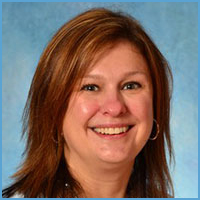
Katharine Harrell, NP-C
Nurse Practitioner
UNC Lineberger Comprehensive Cancer Center
UNC School of Medicine
University of North Carolina at Chapel Hill
Lecture Description
This lecture touches on various topics important in helping breast cancer patients. We’ll discuss early detection, risk factors, diagnoses, treatment, and survivorship as well as breast cancer treatment modalities, including hormone inhibitors. Some patients will might want information about plastic surgery (breast reconstruction), and tips on using cryotherapy for prevention of peripheral neuropathy.
Lecture Objectives:
-
-
- Identify basic breast anatomy and the components of a breast exam
- Define benign v malignant breast disorders
- Describe the basic treatment and follow-up of patients being treated for or having survived breast cancer therapies
-
May 8, 2019
Prostate Cancer Screening
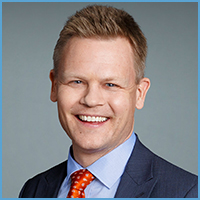
Marc Bjurlin, DO, MSc, FACOS
Associate Professor, Department of Urology
UNC Lineberger Comprehensive Cancer Center
UNC School of Medicine
University of North Carolina at Chapel Hill
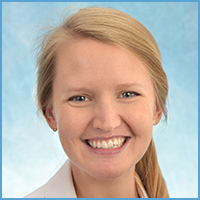
Meredith Crabtree, FNP-C
Nurse Practitioner, Department of Urology
UNC Lineberger Comprehensive Cancer Center
UNC School of Medicine
University of North Carolina at Chapel Hill
Lecture Description
The most common non-skin cancer among men in the U.S., prostate cancer can be difficult to catch early. With this lecture, we will talk about screening methods, such as MRI and MRI- ultrasound targeted fusion biopsy as a risk stratification tool for men at risk for prostate cancer. For men who undergo radiation treatment, we will also touch on which ones might consider utilizing hydrogels. We will also discuss the nurse’s role in prostate cancer screening and care.
Lecture Objectives:
-
-
- Demonstrate the risks and benefits of PSA screening for prostate cancer.
- Identify the role of MRI and MRI-ultrasound fusion biopsy in men at risk for prostate cancer.
- Understand the role of hydrogel in radiation treatment for prostate cancer.
-
April 10, 2019
Preparing Patients for Treatment
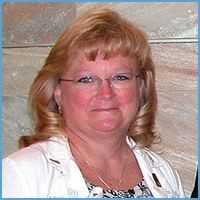
Tammy Allred, RN, OCN
Nurse Navigator
UNC Lineberger Comprehensive Cancer Center
UNC School of Medicine
University of North Carolina at Chapel Hill
Lecture Description
When a patient has received the life-changing news, she or he can feel overwhelmed by the need to digest the diagnosis while understanding and making decisions about sometimes rather complex treatment options. How do we plan and schedule the education for new chemo patients in a timely manner prior to the first day of chemo? What can we do to help the patient understand how the drugs work, what symptoms they can expect, and how they can deal with those symptoms?
Lecture Objectives:
-
-
- Describe the emotional impact of a new cancer diagnosis on a patient’s ability to correctly interpret education.
- Discuss how to coach through patient with decision making in treatment decisions.
- Recall how to effectively communicate important information related to the new diagnosis, treatment options and how new treatments may affect the patient’s overall well-being and lifestyle.
-
March 13, 2019
Cancer-Related Cognitive Impairment:
More Than a Side Effect of Chemotherapy

Zev Nakamura, MD
Consult-Liaison Fellow, Department of Psychiatry
UNC Lineberger Comprehensive Cancer Center
UNC School of Medicine
University of North Carolina at Chapel Hill
Lecture Description
Cancer can impair a patient’s ability to think and to remember. While this condition is often called ‘chemo-brain,’ cognitive impairment stemming from cancer affects patients who might not have had either chemotherapy or radiation therapy. Dr. Nakamura will review our latest understandings of this condition.
Lecture Objectives:
-
-
- Identify causes of cancer-related cognitive impairment.
- Discuss morbidity associated with cancer-related cognitive impairment.
- Describe evidence-based interventions for cancer-related cognitive impairment.
-
February 13, 2019
Safety Considerations When Managing
Dietary Supplements in Cancer Care
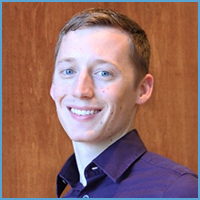
Jacob Hill, ND, MS
Postdoctoral Research Fellow, Program on Integrative Medicine
Department of Physical Medicine & Rehabilitation
UNC Lineberger Comprehensive Cancer Center
UNC School of Medicine
University of North Carolina at Chapel Hill
Lecture Description
Jacob Hill’s main area of focus is integrative medicine and oncology. This lecture will cover various safety considerations regarding the combination of dietary supplements (herbal medicines, nutraceuticals, vitamins, minerals, etc.) and conventional cancer treatment. The lecture will discuss herb/drug interactions, mechanism interactions, food/drug interactions, as well as health systems and health behavior considerations. This lecture is intended to assist oncology providers in discussing dietary supplements with their patients and supporting the safe management of dietary supplements in cancer care.
Lecture Objectives:
-
-
- Define herb/drug interactions and identify potential safety concerns when using herbal medicines with cancer care.
- Describe and provide an example of a mechanism of interaction between a dietary supplement and cancer treatment medication.
- Discuss health systems and health behavior considerations that increase the risk of a safety concern regarding dietary supplements in cancer care.
-
January 9, 2019
Disparities in Breast Cancer:
A Biology, Health Services and Solutions Story
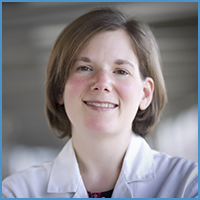
Katherine Reeder-Hayes, MD, MBA, MSc
Assistant Professor
UNC Breast Center
UNC Lineberger Comprehensive Cancer Center
UNC School of Medicine
University of North Carolina at Chapel Hill

Stephanie Wheeler, PhD, MPH
Associate Professor
Health Policy and Management
UNC Gillings School of Global Public Health
Cancer Prevention and Control
UNC Lineberger Comprehensive Cancer Center
UNC School of Medicine
University of North Carolina at Chapel Hill
Lecture Description
This seminar will review the epidemiology of breast cancer disparities and cost of care as a potential determinant of differentiated access to and outcomes of care. We will conclude with potential solutions and future research opportunities.
Lecture Objectives:
-
-
- Describe the epidemiology of racial disparities in breast cancer and identity the most affected subtypes.
- Discuss how tumor biology impacts racial differences in breast cancer.
- Identify evidence for disparities in treatment access and cost as factor in racial outcome differences.
-
December 12, 2018
Prevention of
Chronic Post-Operative Pain
in Cancer Patients
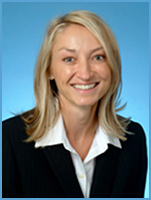
Dominika L. James, MD
Assistant Professor, Department of Anesthesiology
Director, Inpatient Pain Service
Director, UNC Pain Fellowship Program
UNC Lineberger Comprehensive Cancer Center
UNC School of Medicine
University of North Carolina at Chapel Hill
Lecture Description
The talk discusses perioperative pain management techniques that can be utilized to decrease post-operative pain as well as development of chronic postoperative pain among cancer patients.
Lecture Objectives:
-
-
- Define pain, outline early history of pain, and discuss concepts of peripheral and central sensitization in development of chronic pain.
- Define persistent post-surgical pain and address incidence and causative factors contributing to PPSP among cancer patients.
- Describe use of multimodal analgesics and regional anesthesia in preventing PPSP in the cancer population.
-
November 11, 2018
Caring for Adolescents and Young Adults Living with Cancer:
Meeting their Unique Medical and Psychosocial Needs

Lauren Lux, LCSW
Program Director, Adolescent and Young Adult
Department of Pediatrics
UNC Lineberger Comprehensive Cancer Center
UNC School of Medicine
University of North Carolina at Chapel Hill
Lecture Description
Adolescents and Young Adult living with cancer have unique medical and psychosocial needs. The recognition of these needs has created a new field of study in practice in the oncology world. As such many institutions are developing multidisciplinary teams to address AYA needs. However, you don’t need a huge budget or a new program to make an impact with this age group. We will establish the age specific needs of this group and discuss some simple changes to make in your day to day practice that will help you meet your AYA patients’ needs.
Lecture Objectives:
-
-
- Identify the unique medical and psychosocial needs of AYA cancer patients.
- Discuss institutional barriers to delivering age specific care to AYAs with cancer.
- Implement simple changes in clinical practice to improve care delivery and coordination for AYAs with cancer.
-
October 10, 2018
Understanding Oncology Drug Interactions
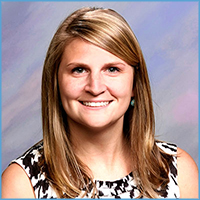
Katherine Morgan, PharmD, BCOP, CPP
Oncology Clinical Specialist, Outpatient Genitourinary and Neuro Oncology
UNC Medical Center
Assistant Professor, Clinical Education
UNC Eshelman School of Pharmacy
University of North Carolina at Chapel Hill
Lecture Description
The narrow therapeutic index of oncology drugs makes understanding drug interactions critical for the safe and effective treatment of cancer patients. Small changes in the pharmacodynamics or pharmacokinetics of the drug can decrease efficacy or increase toxicity of the cancer drug potentially causing harm to patients during treatment.
Lecture Objectives:
-
-
- Discuss the importance of identifying drug-drug interactions in patients receiving cancer directed therapy
- Describe the pharmacokinetic and pharmacodynamic factors that are impacted by drug-drug interactions
- Identify important drug- drug interactions that could increase toxicity or decrease efficacy of a cancer therapy and how to manage them
-
September 12, 2018
Immunotherapy 101

Paul Armistead, MD, PhD
Associate Professor
UNC Lineberger Comprehensive Cancer Center
UNC School of Medicine
University of North Carolina at Chapel Hill
Lecture Description
This lecture will review the mechanisms by which the immune system controls both infections and cancer, as well as strategies cancers have for evading effective immune responses and progression. The lecture will also discuss the different types of currently available cancer immunotherapy treatments, their mechanisms of action and their potential side effects.
Lecture Objectives:
-
-
- List the various components of the human immune system and restate how they work together to generate a coordinated immune response
- Explain the various mechanisms by which cancer can evade immune surveillance
- Explain the different types of active and passive immunotherapies that are clinically used and their relative strengths and weaknesses
-
August 8, 2018
Survivorship Care Planning:
Beyond Standard 3.3
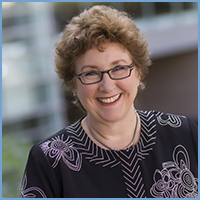
Deborah K. Mayer, PhD, RN, AOCN, FAAN
Director, Cancer Survivorship
Professor, School of Nursing
Cancer Prevention and Control
UNC Lineberger Comprehensive Cancer Center
UNC School of Medicine
University of North Carolina at Chapel Hill
Lecture Description
Survivorship is defined as one who remains alive and continues to function during and after overcoming a serious hardship or life-threatening disease. In cancer, a person is considered to be a survivor from the time of diagnosis until the end of life. This session will review the definition and attributes of being a survivor, what we know about survivors and their needs throughout their cancer journey. Survivorship care planning implications to meet these needs will be described and discussed.
Lecture Objectives:
-
-
- Describe cancer survivorship trends over time
- Define who is a cancer survivor and identify survivors needs across the cancer continuum
- Discuss survivorship care planning to address unmet needs
-
July 11, 2018
Palliative Care Opportunities
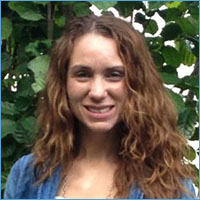
Nicole Sartor, RN, MSN, C-PNP-PC
Children’s Supportive Care Team
UNC Palliative Care Program
UNC School of Medicine
University of North Carolina at Chapel Hill
Lecture Description
This talk will address common myths of palliative and hospice care and explore multiple points along the health trajectory of a patient when a team might consider a palliative care consult. We will consider possible sources of suffering and interventions.
Lecture Objectives:
-
-
- Define pediatric palliative care (PPC) as a set of tasks
- Identify predictable opportunities for palliative care interventions at different stages of disease
- Evaluate myths and assumptions about PPC
-
June 13, 2018
Breast Imaging Technologies:
Cancer Detection & Personalized Medicine

Cherie M. Kuzmiak, DO, FACR, FSBI
Associate Professor, Department of Radiology
UNC School of Medicine
University of North Carolina at Chapel Hill
Lecture Description
Breast cancer is the most common cancer among women in the world. There is no preventable cause for the disease. Consequently, our best means for detection and saving lives is with screening. This lecture will focus on essential advances in breast imaging and cancer detection.
Lecture Objectives:
-
-
- List three new developments in breast imaging
- Discuss the advantages and disadvantages of the advances in breast imaging and cancer detection
- Describe how the advances in breast imaging and cancer detection can be applied to the participant’s practice patterns to benefit their patient
-
May 9, 2018
Medical Marijuana:
It’s High Time to Talk
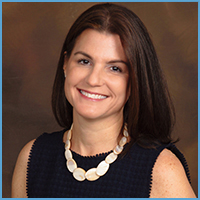
Alisha Benner, MD
Lead Physician
Aspire Health
Lecture Description
In recent years, the public and lawmakers have recognized the benefits of using marijuana as part of a treatment plan for patients with difficult diseases to manage. For example, cancer patients undergoing chemotherapy find that medical marijuana diminishes nausea and can stimulate appetite. This presentation provides an overview of the complex history of medical marijuana and the current applications of its use.
Lecture Objectives:
-
-
- Recall the rich history and debate over medical marijuana
- List at least 3 diseases for which medical marijuana has demonstrated clinical benefit
- Discuss the “endocannabinoid system” and the “entourage effect”
-
April 11, 2018
The 7th Vital Sign:
Identifying Malnutrition

Meredith Moyers, MS, RD, CSO, LDN
Registered Dietitian, Nutrition Program
UNC Lineberger Comprehensive Cancer Center
UNC School of Medicine
University of North Carolina at Chapel Hill
Lecture Description
Malnutrition can be a problem for cancer patients, since chemotherapy and/or radiation therapy might negatively affect a cancer patient’s appetite. This lecture discusses screening tools that are available to detect malnutrition and diagnose its extent.
Lecture Objectives:
-
-
- Identify appropriate screening tools for malnutrition.
- Determine the etiology, presence, and degree of malnutrition using the Academy/ASPEN adult malnutrition guidelines.
- Review the nutrition-focused physical examination to determine the loss of subcutaneous fat and/or muscle mass and the presence of possible micronutrient deficiencies and fluid accumulation.
-
March 14, 2018
Improving End-of-Life Care:
What Can We Learn from the Bereaved?
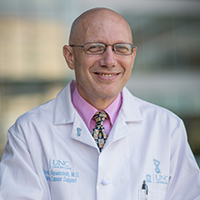
Donald Rosenstein, MD
Professor and Vice Chair, Division of Hospital Psychiatry
Director, Comprehensive Cancer Support Program
UNC Lineberger Comprehensive Cancer Center
UNC School of Medicine
University of North Carolina at Chapel Hill

Justin Yopp, PhD
Assistant Professor, Department of Psychiatry
UNC Lineberger Comprehensive Cancer Center
UNC School of Medicine
University of North Carolina at Chapel Hill
Lecture Description
For the past eight years, Dr. Rosenstein and Dr. Yopp have run a support group for widowed fathers and conducted clinical research on this bereaved population. In this talk, they will briefly review the literature on studies of bereaved subjects, their research findings, and lessons learned from these studies.
Lecture Objectives:
-
-
- Differentiate the Dual Process Model of Bereavement from traditional stage models of grief and bereavement.
- Identify major psychological challenges experienced by widowed fathers.
- List several areas of end of life care that can be improved by the reports of the bereaved.
-
February 7, 2018
The Importance of an Integrated Emotional Support Program
for Physicians and Providers:
How Do We Take Care of Our Own?
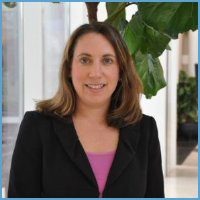
Samantha Meltzer-Brody, MD, MPH
Associate Professor
Associate Chair, Faculty Development
Director, Perinatal Psychiatry Program
UNC Lineberger Comprehensive Cancer Center
UNC School of Medicine
University of North Carolina at Chapel Hill
Lecture Description
Provider burnout and compassion fatigue can impact both personal health and professional performance. This lecture will multiple strategies at the personal and system level that can be employed to mitigate the symptoms and move toward prevention.
Lecture Objectives:
-
-
- Describe symptoms of burnout in health care providers and learn how to recognize them.
- Describe compassion fatigue and the “second victim” experience in health care providers who experience adverse patient events, and the negative impact on health care providers.
- Discuss strategies to mitigate the impact of burnout and compassion fatigue on providers at both the individual and system levels.
-
January 10, 2018
Fluorouracil (5-FU) Toxicities
and Strategies for Management
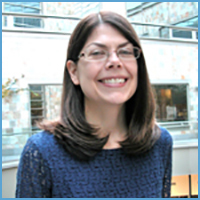
Aimee Faso, PharmD, BCOP, CPP
Clinical Assistant Professor
UNC Eshelman School of Pharmacy
Clinical Specialist, Hematology/Oncology Outpatient Clinic
UNC Lineberger Comprehensive Cancer Center
UNC School of Medicine
University of North Carolina at Chapel Hill
Lecture Description
Fluorouracil (5-FU) is a relatively unique drug in oncology because administration in different doses and schedules results in dramatically different patterns of qualitative toxicity. This lecture will discuss the hematologic, skin, and GI toxicities along with strategies for management.
Lecture Objectives:
-
-
- Identify and describe the hematological, dermatological, and gastrointestinal toxicities of 5-fluorouracil.
- Describe methods to manage patients with 5-fluorouracil-related toxicities.
- Describe the use of uridine triacetate in patients with 5-fluorouracil overdose or in patients who exhibit severe adverse reactions.
-